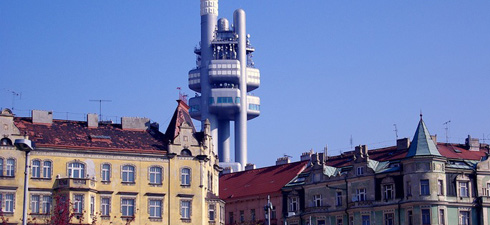Prague is the geographical and spiritual centre of Europe. It is also the greatest surviving example of the European city: a compact human habitat, where two languages and two faiths have competed for dominance, a centre of commerce and culture, and a throne that still wears its regal aspect. Prague has its secrets – the spells and black magic of the Golem and Elena Makropulos; the nightmarish order depicted by Franz Kafka; the intimate musings of Čapek’s "ordinary man". But it has its glorious, open, triumphant aspect, which is that of a city that has pride without pomp, and ornament without vulgarity.
For fifty years the civic spirit of this city was suppressed. When I first discovered it Prague was hardly a city at all – more like a stage set for a drama that was no longer performed. The great baroque palaces wept stucco onto the scaffolding that lined each street; churches were closed or deprived of their specific ceremonies; and everything was in disrepair. Theatres, concert-halls, even the national opera, had sunk into mediocrity and the university was a stagnant backwater cut off from the stream of European scholarship. Many writers, artists and thinkers with whom this city will be associated by future generations had been excised from the official history, including Kafka, Patočka, Kundera and Havel.
The physical embodiment of a moral idea
By the time that the communists fell from power Kafka was long dead, Kundera in exile, and Patočka killed by the secret police. Before dying, however Patočka delivered in the catacombs the lectures that summarised, for me, the perennial meaning of this city. These lectures were published in samizdat as Platon a Evropa, Plato and Europe, and were an attempt to uphold Plato’s original vision of the city, as a place that should "take care of the soul". The city, on Patočka’s view, was the greatest of the gifts that the Greeks had bestowed on Europe. Of course, cities have grown elsewhere – in India, China and the Middle East; and under European influence in Africa and America. But only in Europe has the city grown according to its inner nature, to become a law-governed community, in which diverse classes, occupations, creeds and opinions flourish side by side, in the mutual pursuit of scientific knowledge, aesthetic taste and spiritual improvement.
In building a city, therefore, two requirements are uppermost: the harmonious use of public space, and the humility of all buildings that impinge upon it. This is what you see in the old streets, churches and palaces of Prague. Even in the most flamboyant baroque façade, such as that of the Palais Clam-Gallas, we find a love of the street, an attempt to harmonise with adjacent buildings, and a desire to emphasize the boundary between the public and the private, while showing respect for both. The reason why the visitor to Prague stares in awe at this jewel of a city is that here, before his eyes, is the physical embodiment of a moral idea.
The contempt expressed by architects, developers, city planners
So it was, at any rate, in the days of Dvořák, Neruda and Julius Zeyer. So it was in the First Czechoslovakia, when Janáček, the Čapeks, Nezval and Martinů walked these streets. So it was even in the days of the crumbling stage-set that the communists had left to decay. But alas things are not so today. Unprotected as it was, emerging fragile and uncertain from the fifty years of tyranny, the city had to face the sudden invasion of the predators – people from elsewhere, who did not value the city as a home and a settlement, who had not the faintest inkling of that moral idea so quietly expressed by Patočka, who appreciated beauty only as a commercial prospect and a tourist attraction. Within a space of 20 years they have littered Prague with grotesque gadgets, like the Pyramid Hotel, the Walters Towers, the faceless TMGU building – structures that destroy the city as a communal habitat and which erase the public spaces that have been treasured by so many people over the centuries. Of course, the effect should not be blamed only on international capitalism and its placeless imperatives. The communists did what they could to rub out the tranquil face of the old city, and one of the greatest triumphs of their uglification, as Kundera calls it – the television tower at Žižkov – was lauded as a visitor from the future, proof that "actually existing socialism" could "move with the times".
There is no greater threat to the environment, it seems to me, than the contempt expressed by architects, developers, city planners and those who exploit them. There is no worse form of pollution than aesthetic pollution, since it is an act of aggression against mankind, an attempt to privatise the public space, and to put what is most precious and irreplaceable on sale. I know many people don‘t agree with this. And perhaps I would not have thought this way myself, had it not been for Prague, the city, and Prague, the moral idea, relayed to me by lectures delivered underground by an old professor who was murdered for his pains.
 This article is a transcript of a speech given at the Forum 2000 , "The world we want to live in" held in Prague 10-12 October.
This article is a transcript of a speech given at the Forum 2000 , "The world we want to live in" held in Prague 10-12 October.
Was this article useful? If so we are delighted!
It is freely available because we believe that the right to free and independent information is essential for democracy. But this right is not guaranteed forever, and independence comes at a cost. We need your support in order to continue publishing independent, multilingual news for all Europeans.
Discover our subscription offers and their exclusive benefits and become a member of our community now!












